Moving to a new home is exciting, but there’s one key factor that can make or break the experience —choosing the right moving company.You have probably heard stories about people who got scammed by rogue movers or had their belongings held hostage for additional payments.
It’s a nightmare no one wants to deal with. But how can you make sure you are working with a legitimate moving company? That’s exactly what we will talk about here.
With more than 40 million Americans moving each year, the moving industry is big business, and like any industry, it has its share of bad actors. So, how do you protect yourself? How do you spot a rogue mover before it’s too late?
Let’s discuss some key steps to ensure you’re hiring a legitimate moving service.
Why It’s Crucial to Verify a Moving Company’s Legitimacy
According to the Federal Motor Carrier Safety Administration (FMCSA), there are over 3,000 consumer complaints filed annually against moving companies. Most of these involve unlicensed movers, overcharges, lost or damaged property, and even hostage situations where belongings are held until extra fees are paid.
A legitimate moving service offers peace of mind and professional care of your belongings. Rogue movers, on the other hand, may leave you in the lurch, leading to higher costs and a lot of headaches.
Steps To Find Out If a Moving Company is Legitimate or Not
Verify Licensing and Credentials
One of the most foolproof ways to determine how to know if a moving company is legitimate is by checking their licenses. In the U.S., interstate movers (those moving goods across state lines) must be registered with the FMCSA. They are assigned a U.S. DOT number, which is easy to check online.
How to Check for a U.S. DOT Number:
- Go to the FMCSA website.
- Look for the "Search Movers & Complaint History" section.
- Enter the company’s U.S. DOT number.
- Verify that the information matches what the company has told you.
Note: For local moves within the same state, licensing requirements vary. Check your state’s moving regulations or consult your state’s Department of Transportation or Public Utilities Commission.
Research Company Reviews and Ratings
This one seems obvious, but many people overlook it. Online reviews are gold mines for spotting red flags. While every company will have the occasional bad review, you want to pay attention to patterns. If you see a lot of complaints about overcharging, damaged property, or poor communication, it’s time to move on.
Where to Check Reviews:
-
Better Business Bureau (BBB): The BBB is a great resource for checking a company's accreditation and ratings. If a company isn't listed with the BBB, that's a huge red flag.
-
Google Reviews: Here, you’ll find a wide range of customer experiences. Be wary of companies with low ratings or generic-sounding positive reviews.
-
My Good Movers: A website dedicated to helping consumers find the best-moving company according to their needs. You can check each moving company's reviews and even contact them directly here.
Watch for These Red Flags
What about the warning signs of rogue movers? Some shady companies often operate with a few common tactics.
Key Red Flags:
- No in-home estimate: Legitimate moving services almost always provide a free, in-home estimate. If the company only offers estimates over the phone or online without seeing your property, they might be cutting corners.
- Large upfront deposits: Most legitimate movers won’t ask for large deposits before the move. A reasonable deposit is typically around 10-20% of the estimated cost. If the company demands full payment upfront or a huge deposit, proceed cautiously.
- Unmarked trucks: Legitimate companies will have their logo and information clearly displayed on their moving trucks. If the truck is plain or rented, this could be a sign you are dealing with a rogue mover.
Read more in detail: Worst Moving Companies - How to Identify, Avoid, and Handle Them.
Get a Written Estimate
When discussing price, always get a written estimate. This should be detailed, covering everything from the type of services to the total weight of your belongings.
Ask for a binding estimate, which locks in the price and prevents surprise charges on a moving day. A non-binding estimate could lead to higher costs later.
If the estimate seems too good to be true, it probably is. Rogue movers often lure people in with lowball estimates, only to jack up the price once your belongings are on their truck.
Click to learn more about moving estimates
Get a free moving estimate now.
What Should a Written Estimate Include?
- Total cost based on weight/volume
- Any additional services (packing, long carry fees, etc.)
- Estimated delivery window
- Insurance options
Check for Consumer Protection for Moving
The U.S. government provides consumer protection for moving through the FMCSA, which is responsible for regulating the moving industry. Before hiring a mover, you should know your rights and the protections available to you.
The FMCSA offers a booklet called Your Rights and Responsibilities When You Move, which legitimate movers are required to provide. This booklet details everything you need to know about your rights, insurance, and what to do if something goes wrong.
By understanding consumer protection for moving, you can avoid falling victim to common scams. Knowing your rights is key to ensuring that your move is as stress-free as possible.
Ask About Insurance and Valuation Protection
Even with the most legitimate moving service, accidents can happen. Make sure to ask about insurance and what kind of valuation protection is available for your belongings.
There are two main types of valuation protection:
- Released Value Protection: This is basic coverage included in most moving contracts, covering your goods at $0.60 per pound per item.
- Full Value Protection: This offers more comprehensive coverage. If an item is lost or damaged, the mover must either replace the item, repair it, or compensate you for its full value.
Perform a Moving Company Background Check
One final step that can save you a lot of headaches is doing a thorough moving company background check. This can go beyond just reading reviews—dig a little deeper.
Steps for a Background Check:
- Verify the U.S. DOT number, as mentioned earlier.
- Check for any history of complaints with the FMCSA.
- Look up the company’s insurance and make sure it’s up to date.
- Ask about professional memberships, such as with the American Moving & Storage Association (AMSA). Membership in industry groups can be a sign of credibility.
In a nutshell, It’s not difficult to avoid scams if you know what to look for. Follow these steps to ensure the moving company you choose is the real deal.
Remember, when choosing a moving company, the old saying rings true: “If it sounds too good to be true, it probably is.” Take your time, and don’t rush the process.
Here is a Quick Checklist to Spot a Legitimate Moving Company
| Key Factor | What to Look For |
|---|---|
| Licensing | U.S. DOT number (for interstate moves), state licenses |
| Reviews | BBB accreditation, Google reviews, My Good Movers |
| Written Estimate | Binding, detailed, includes all charges |
| Upfront Deposits | Avoid large deposits; 10-20% is reasonable |
| In-home Estimate | Legitimate companies will visit your home |
| Insurance Options | Released value vs. full value protection |
| Consumer Rights | FMCSA booklet provided: "Your Rights and Responsibilities When You Move." |
After finalizing the moving company, you might need this: How to Prepare for a Move: Checklist, Tips and More.





























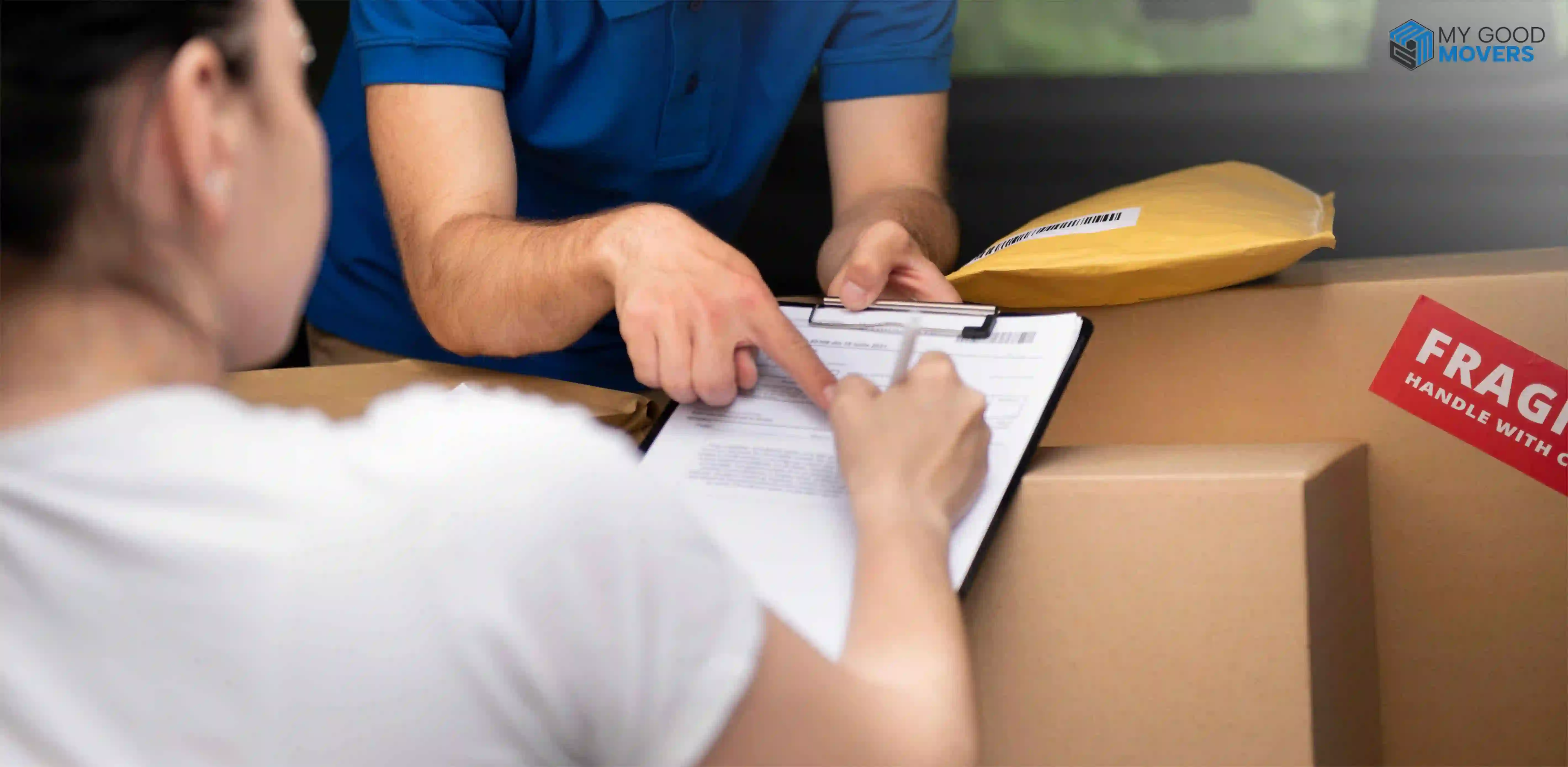






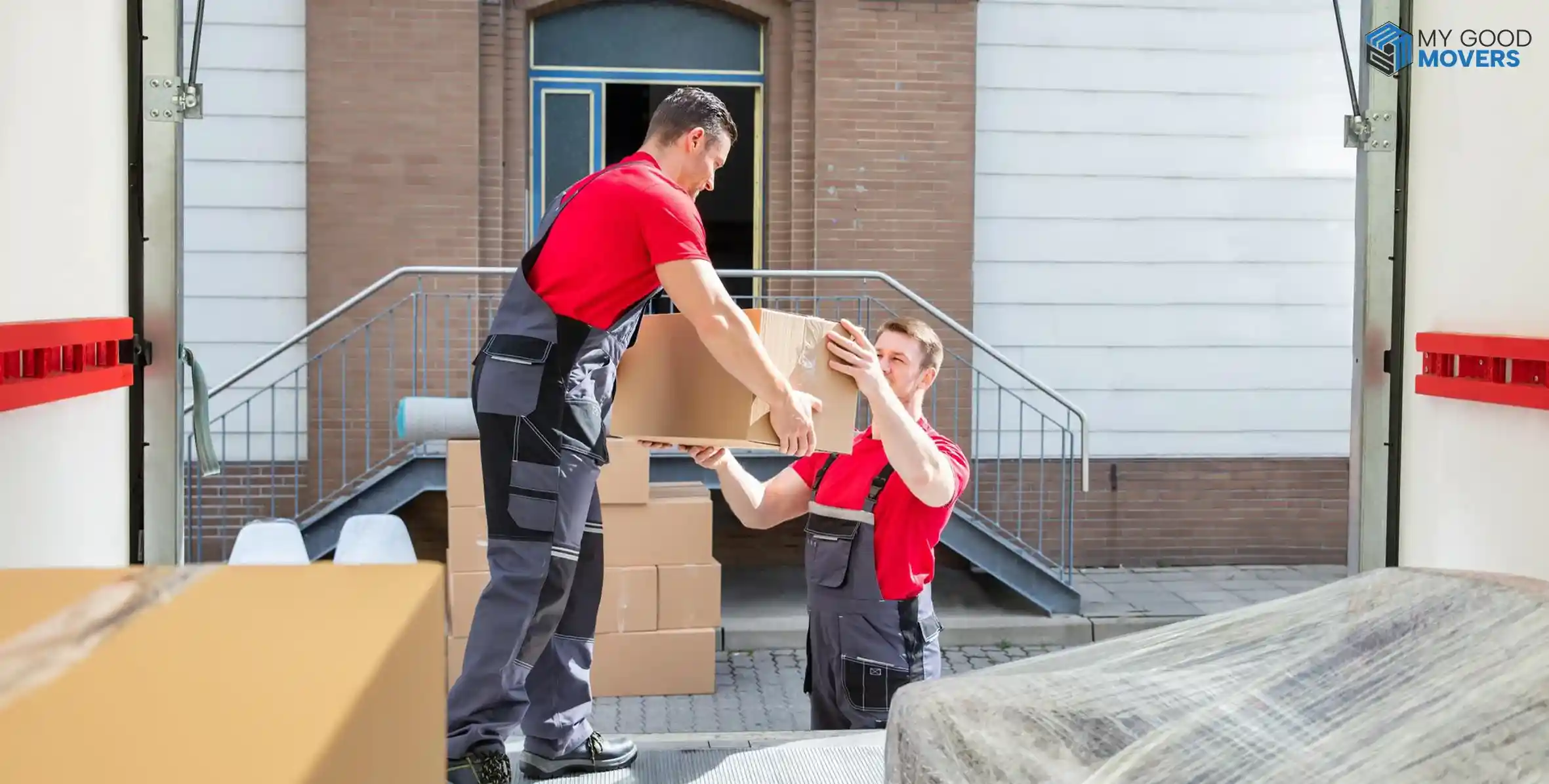


















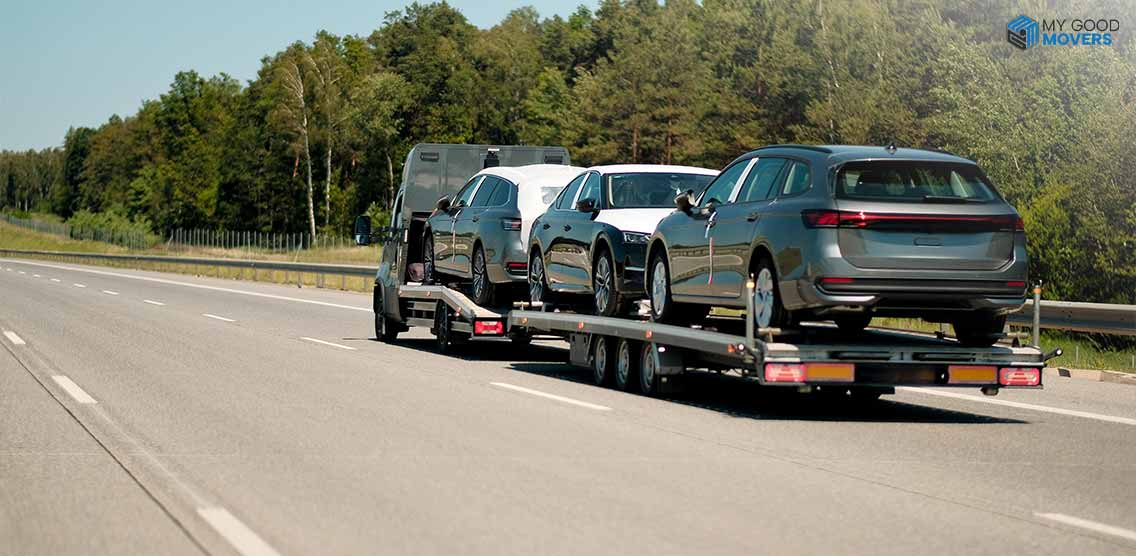
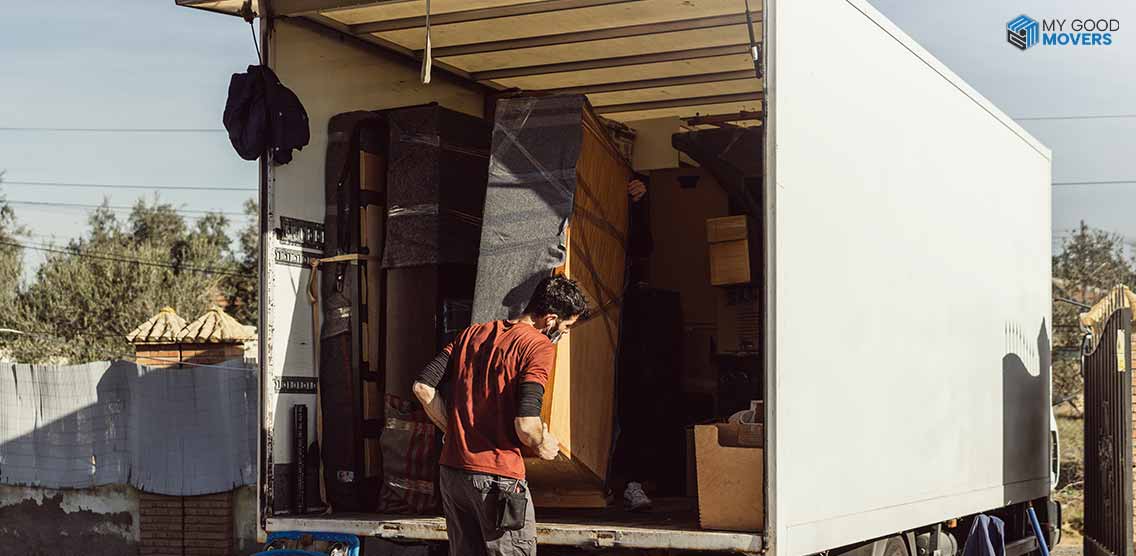


























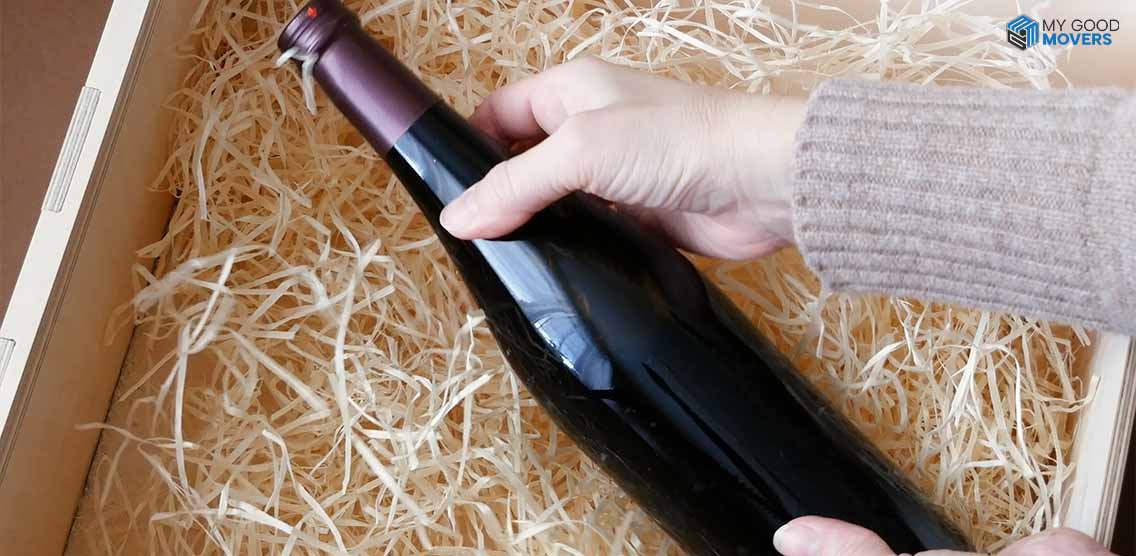

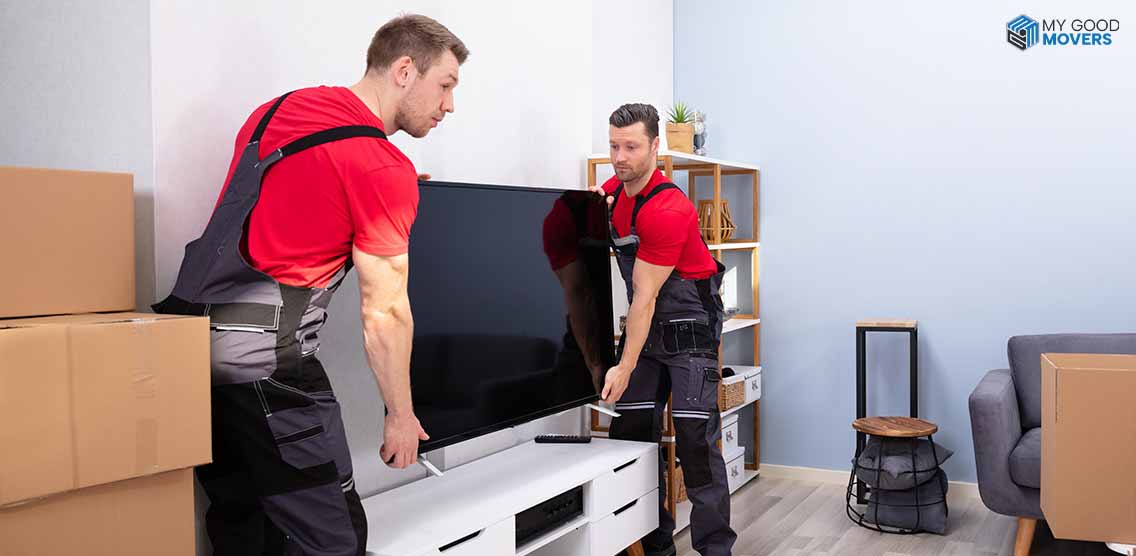





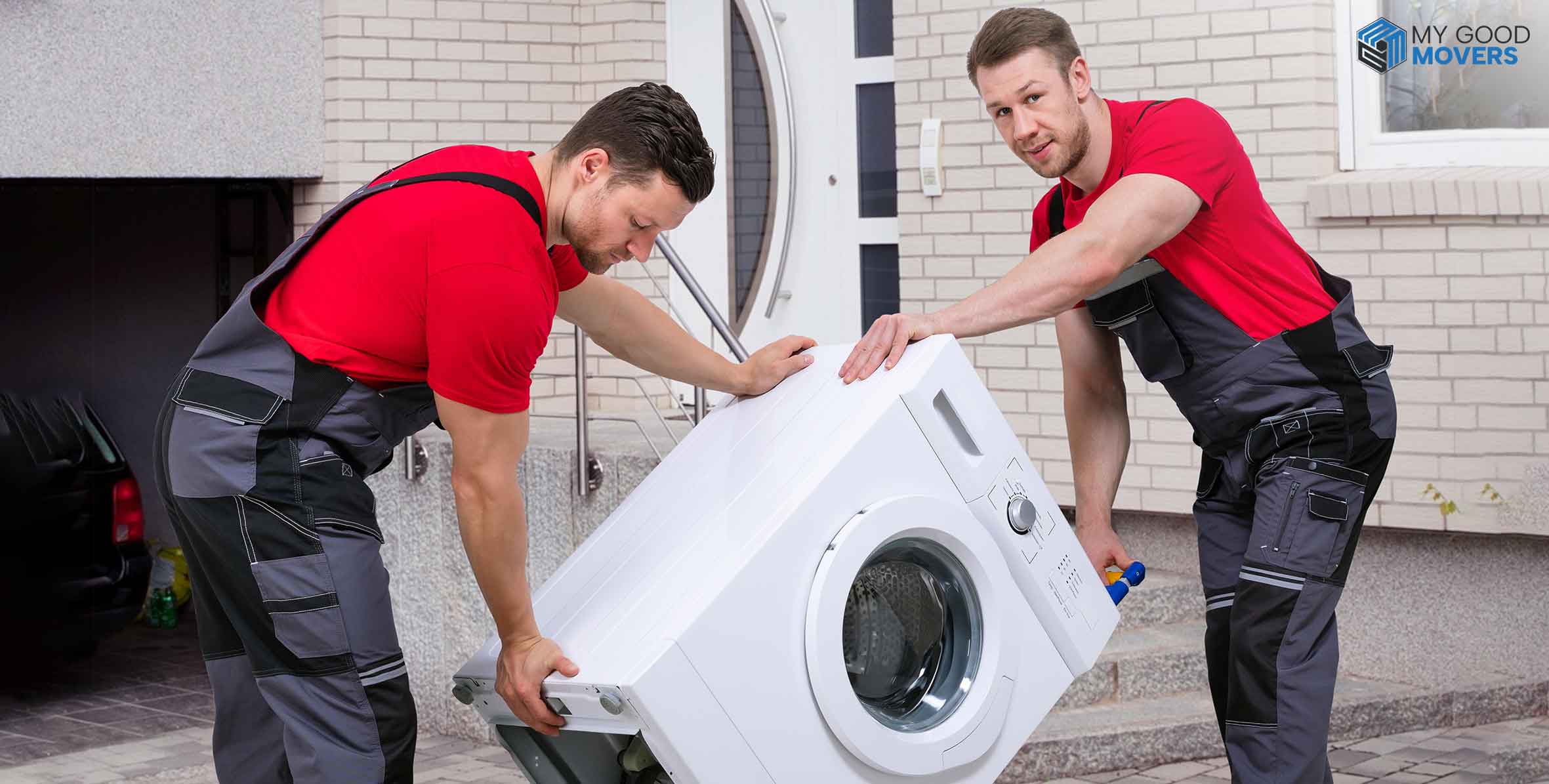





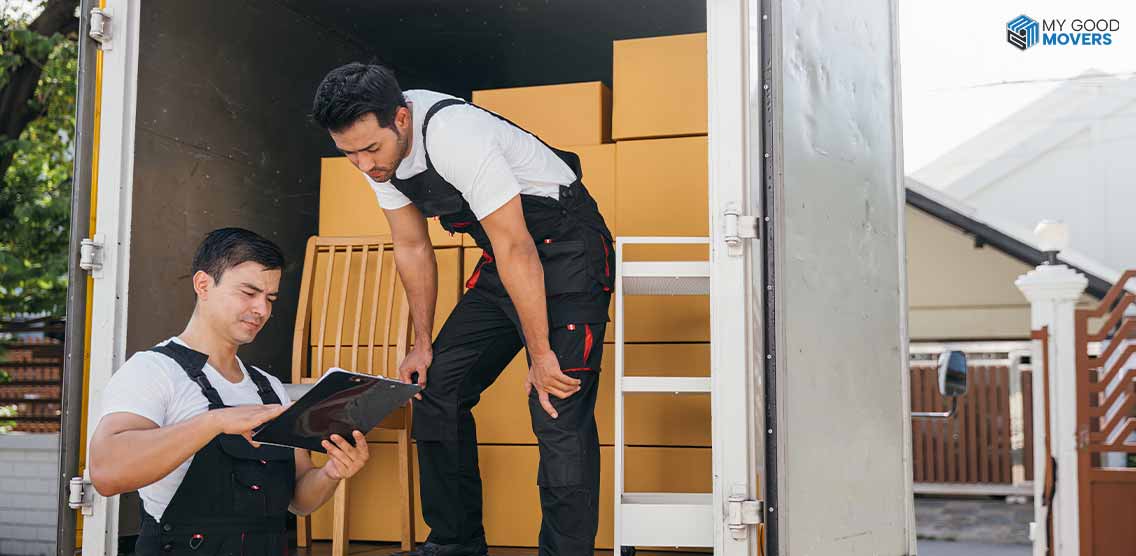
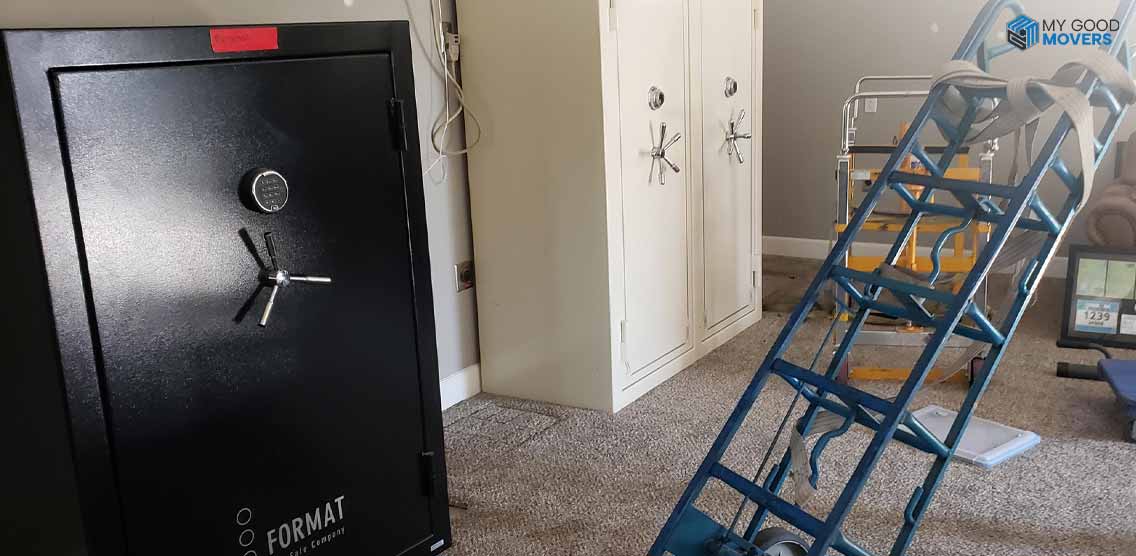







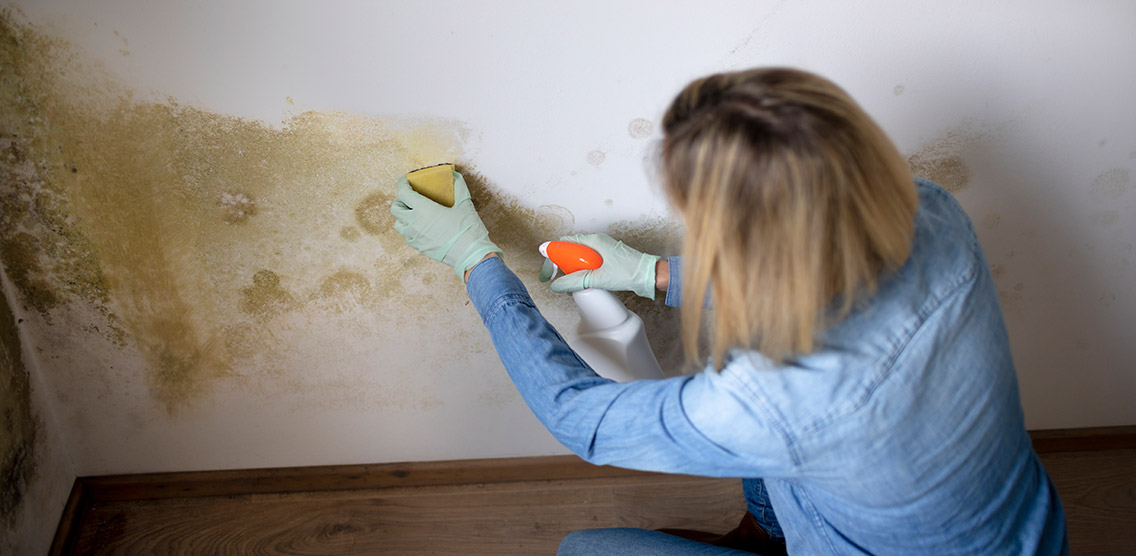


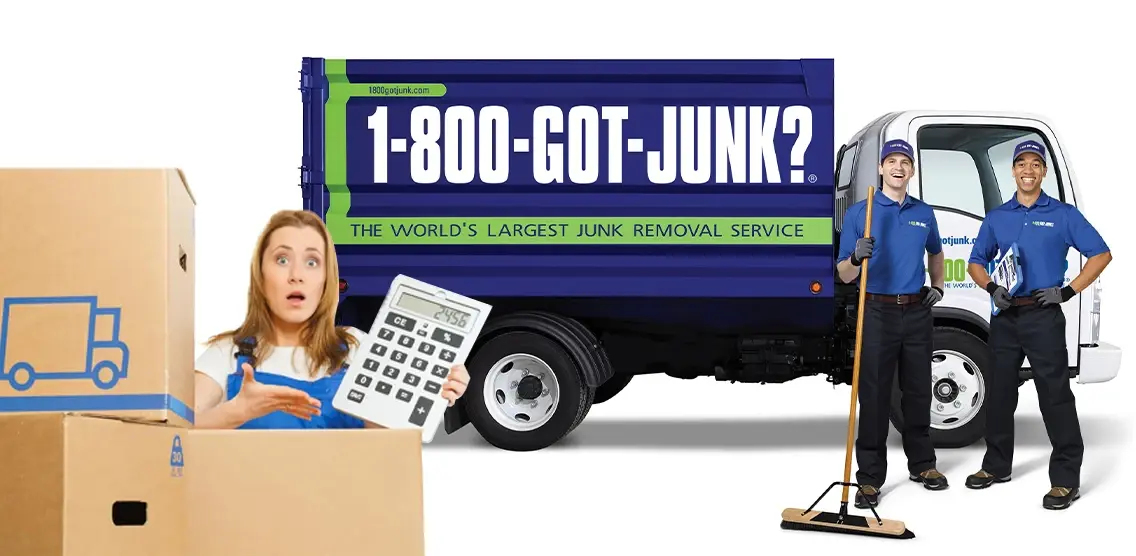
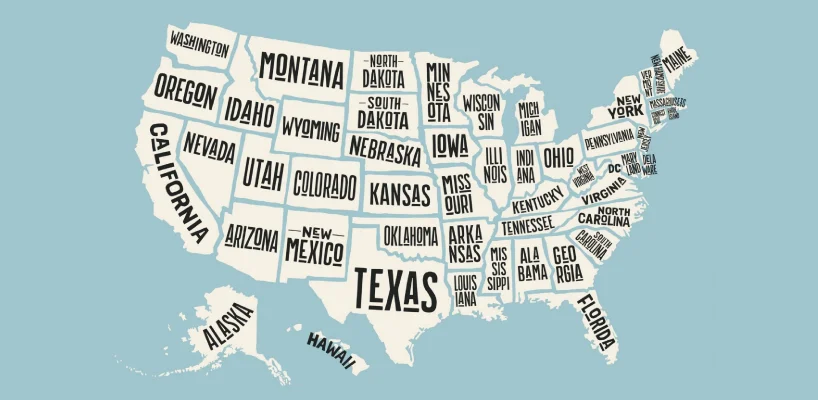





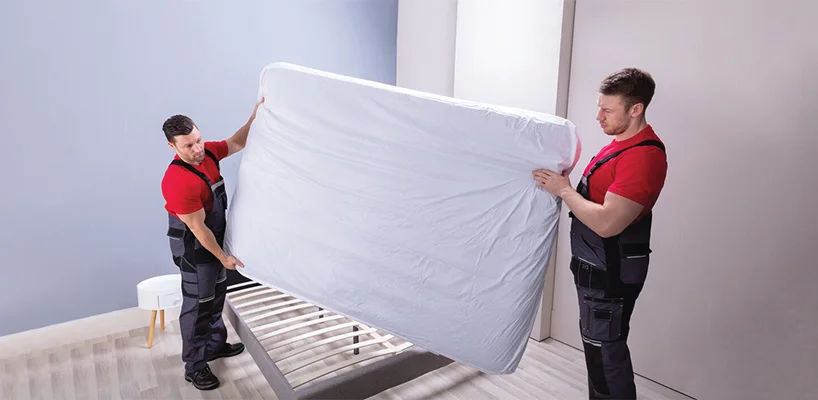
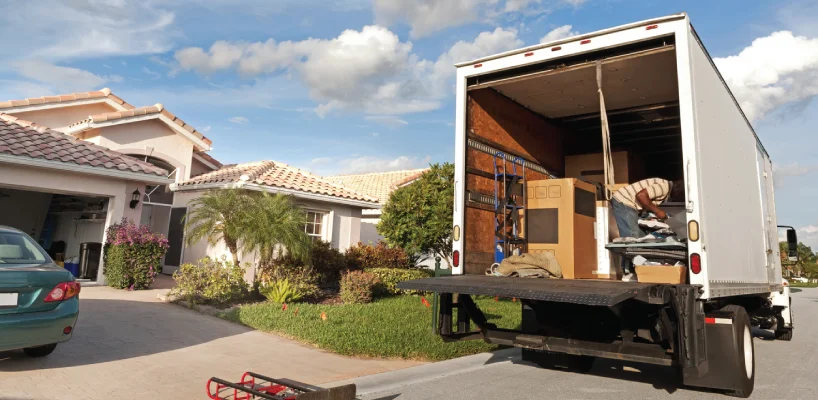




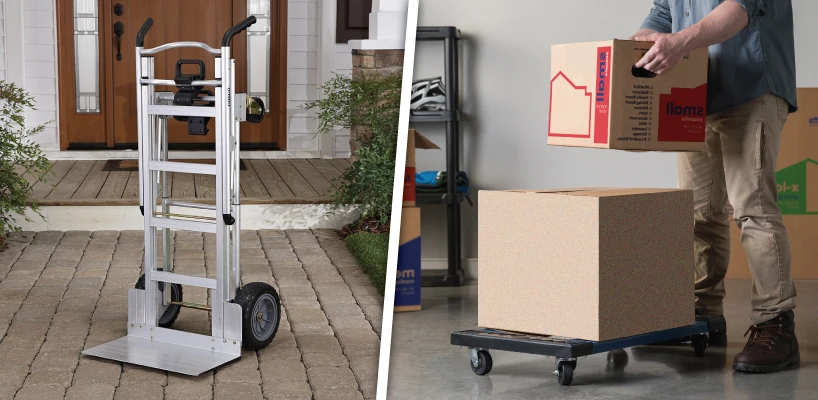
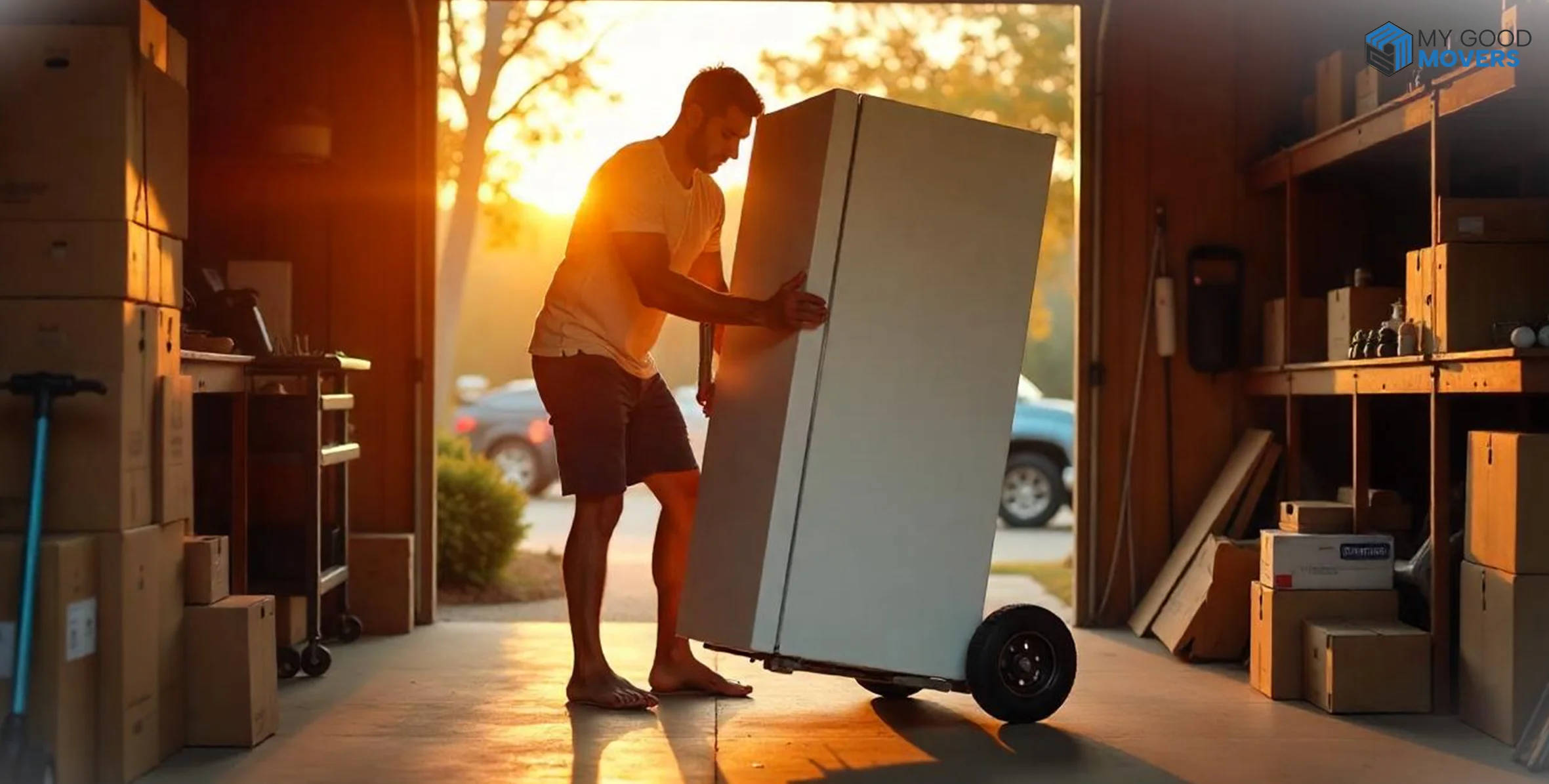
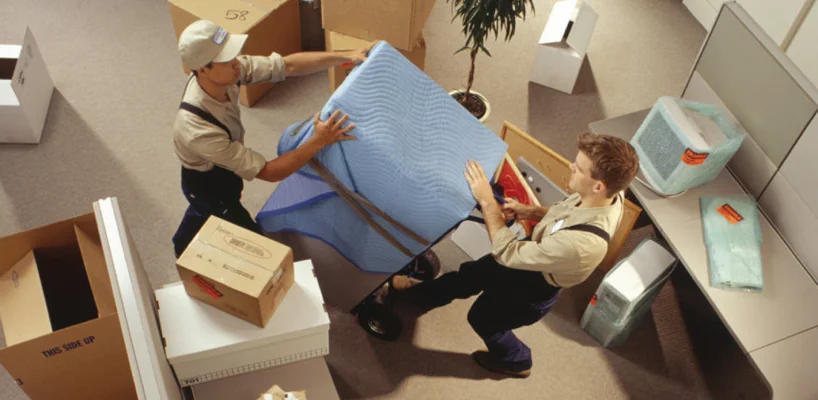





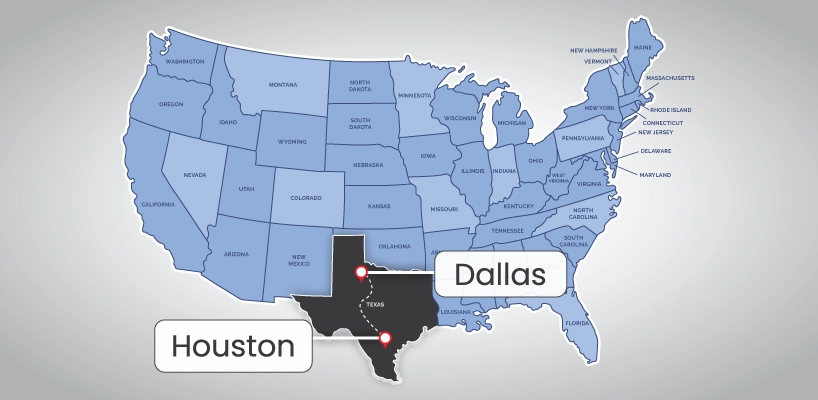


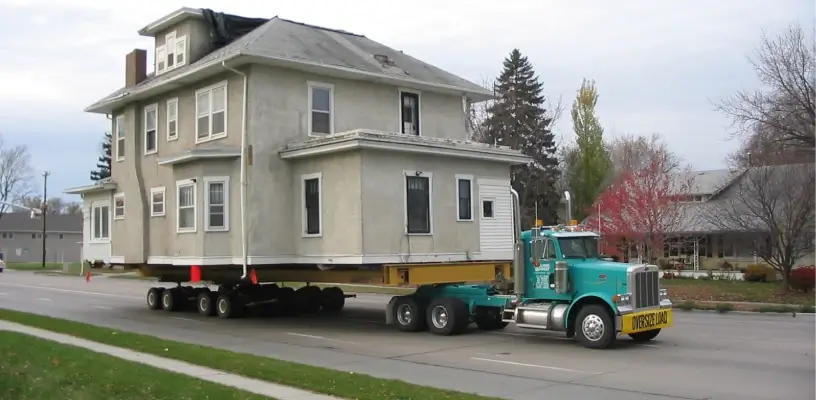
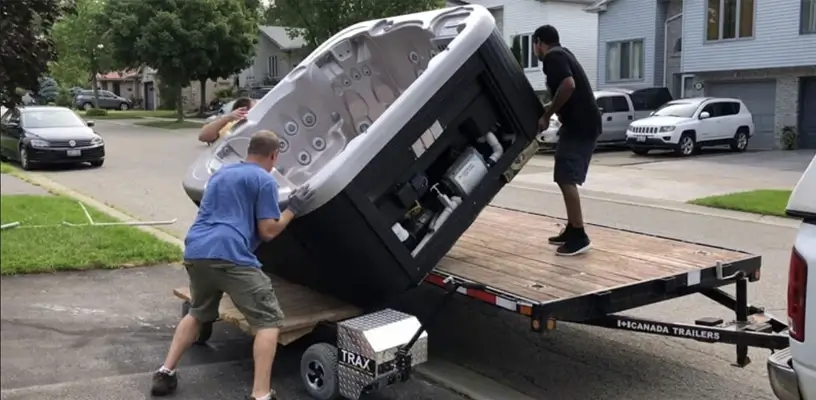




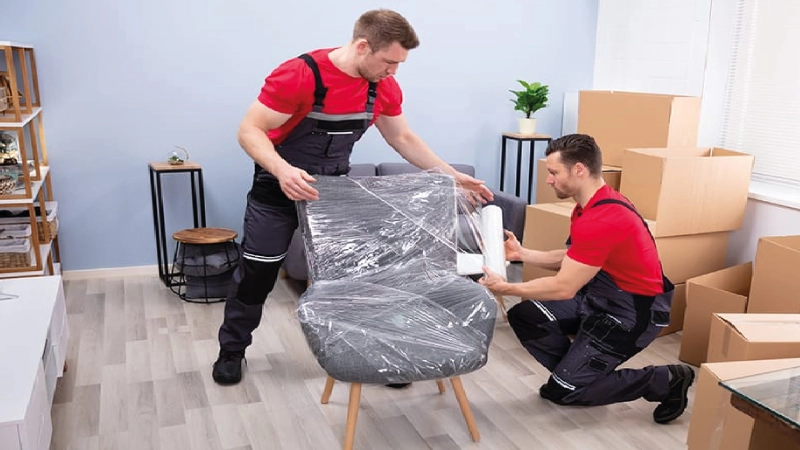

 (239) 799–6077
(239) 799–6077